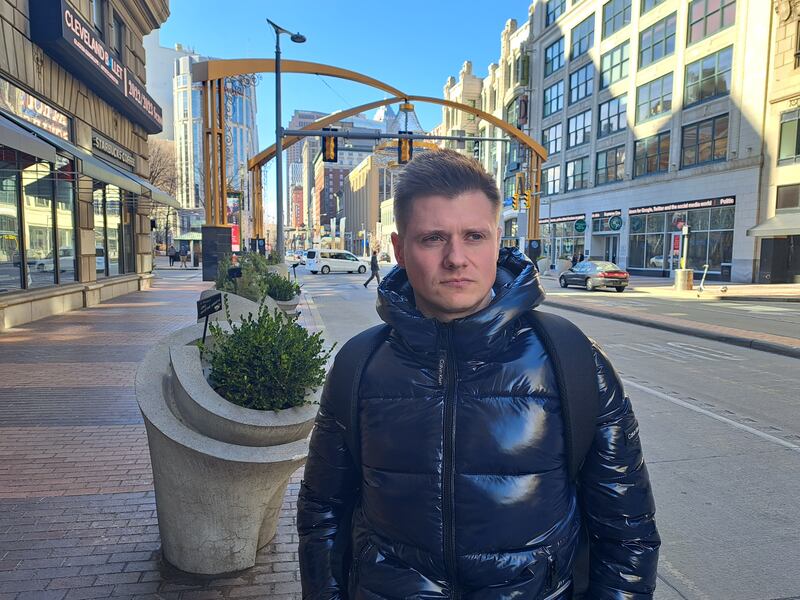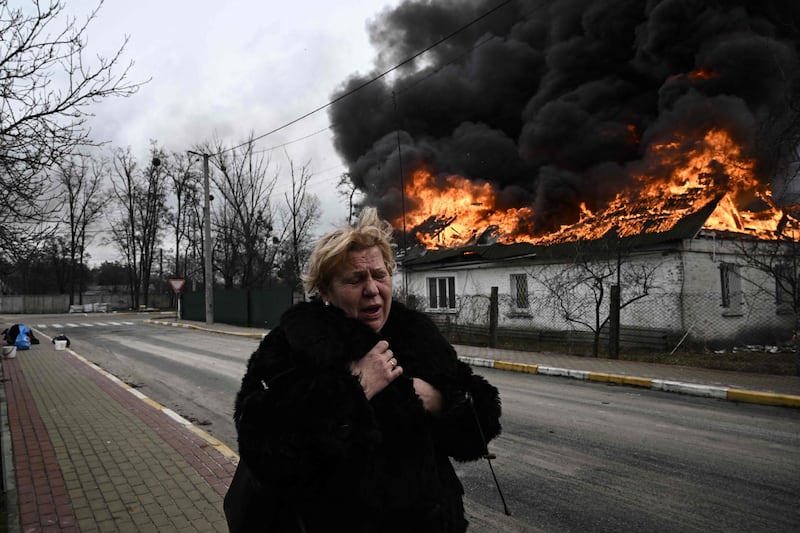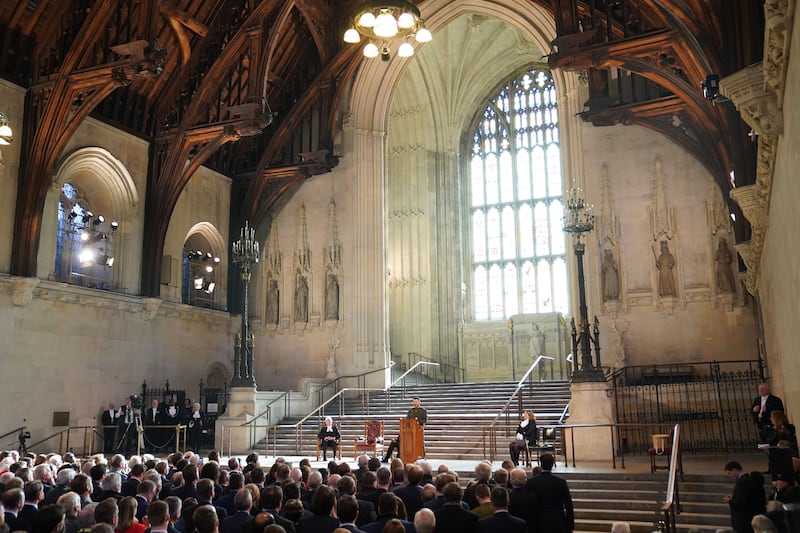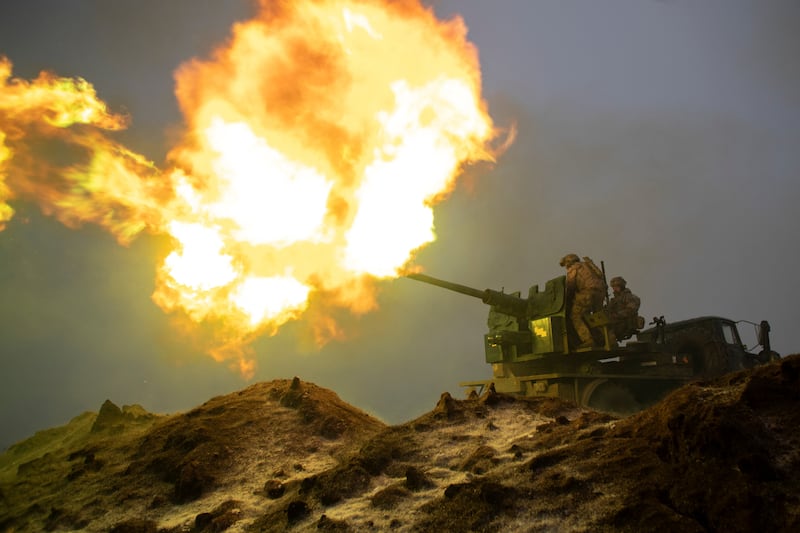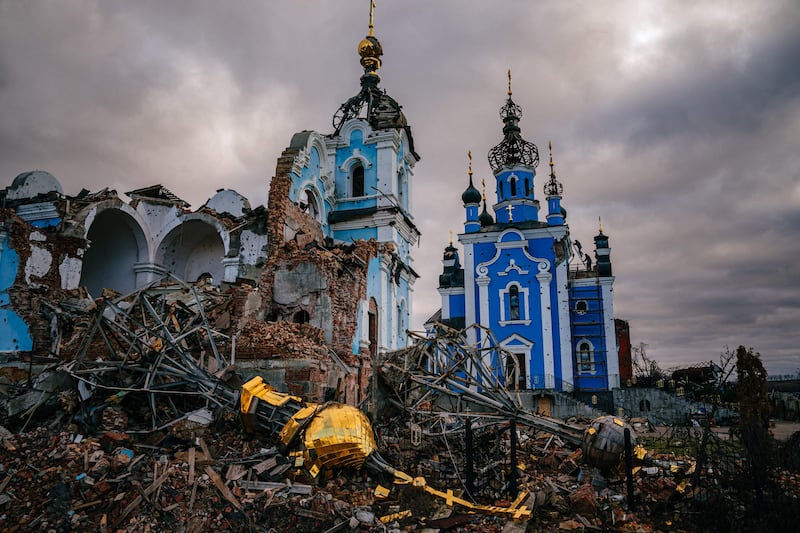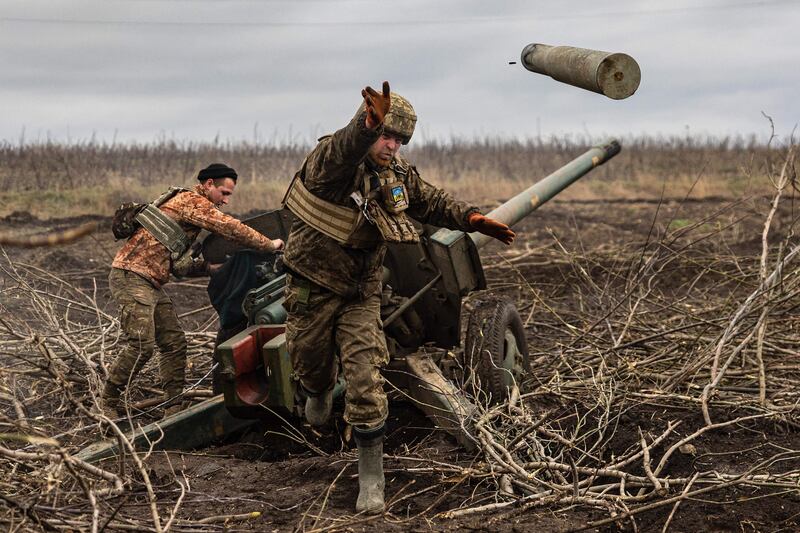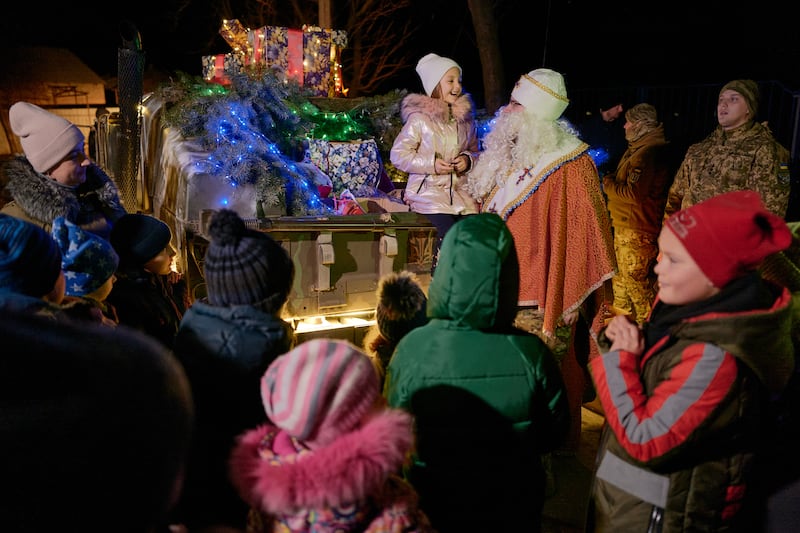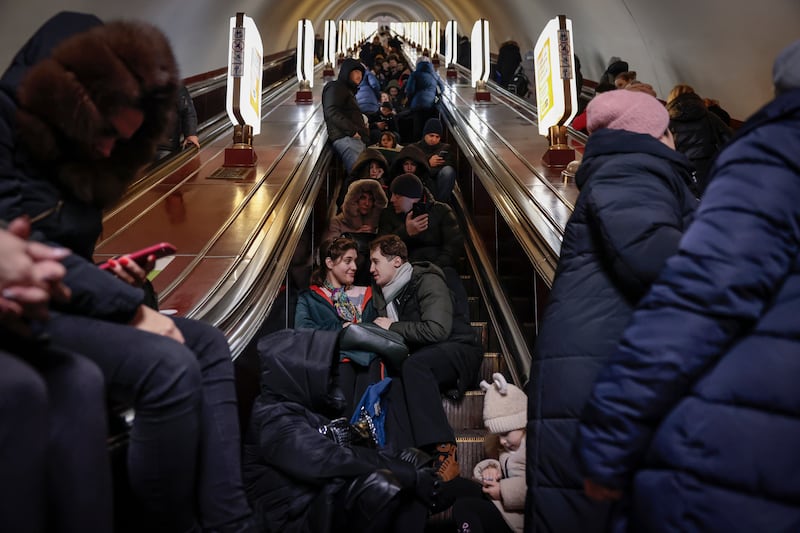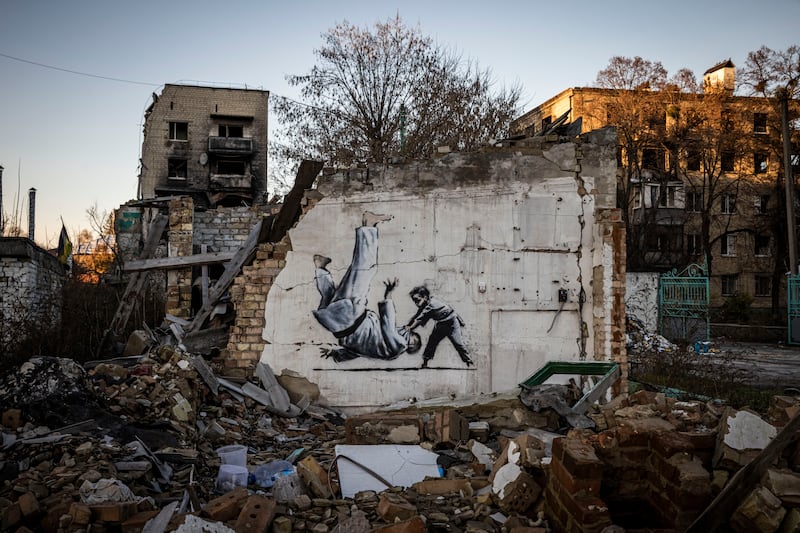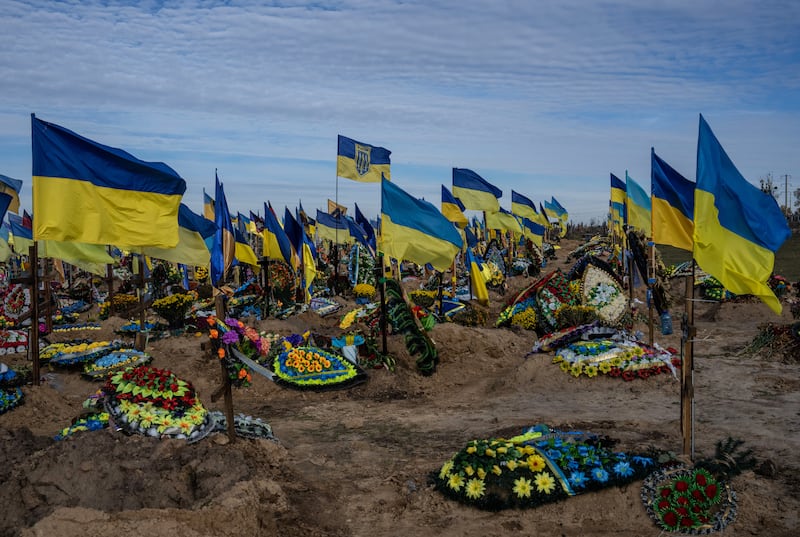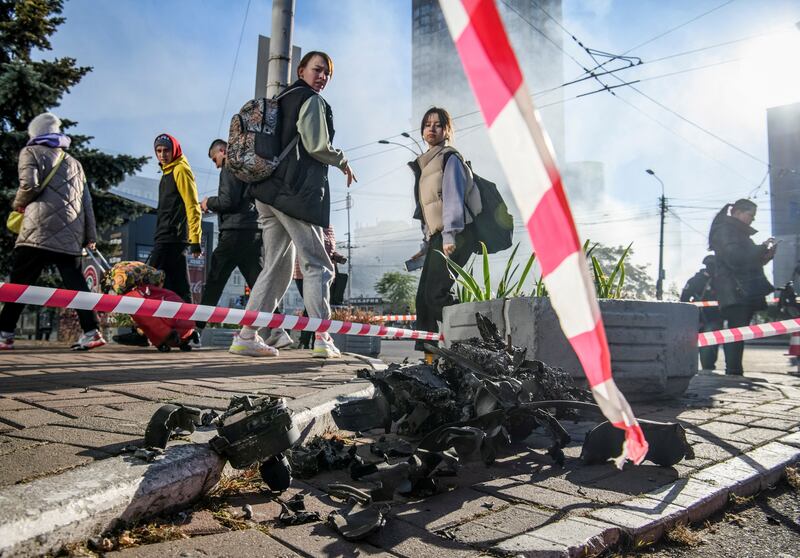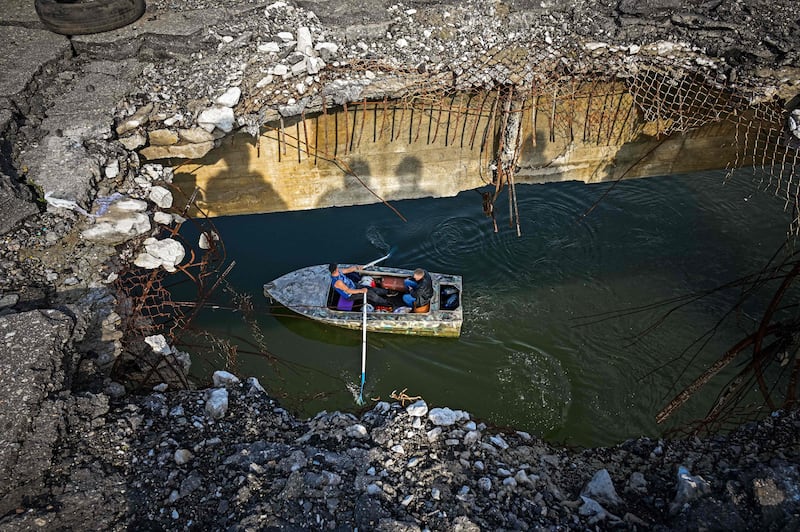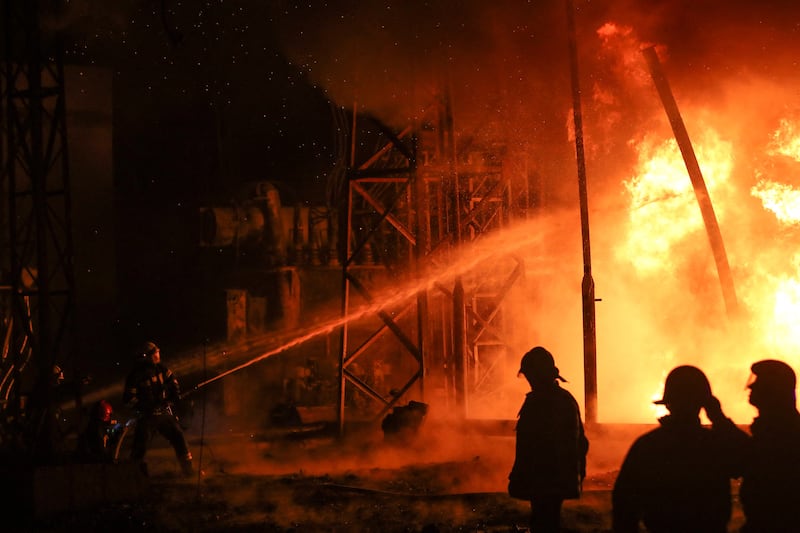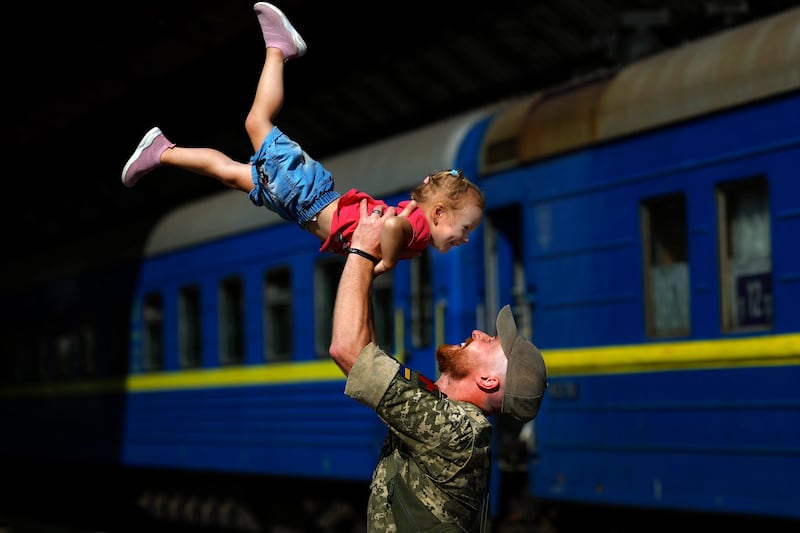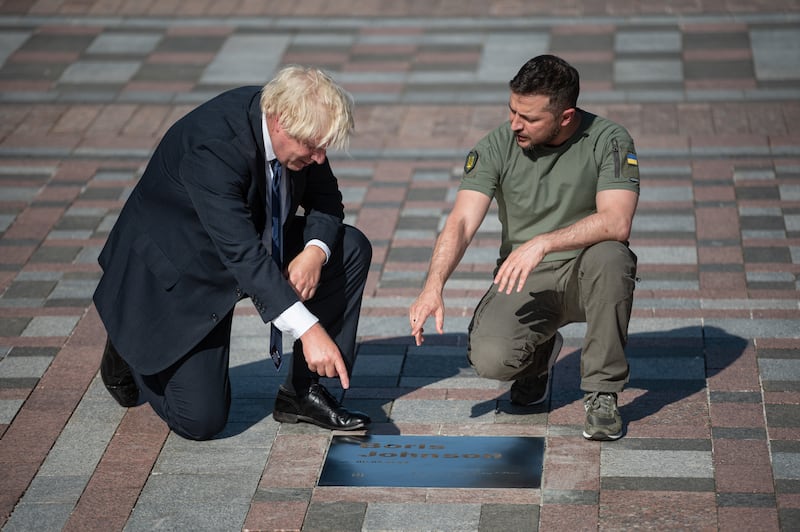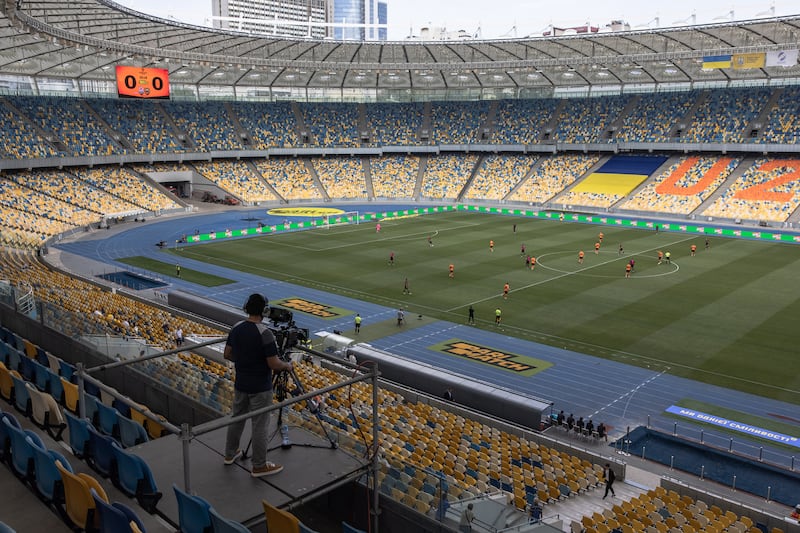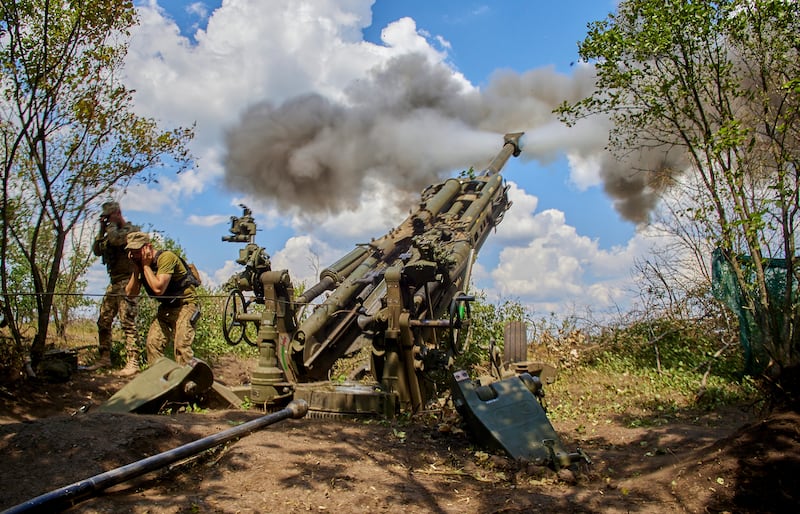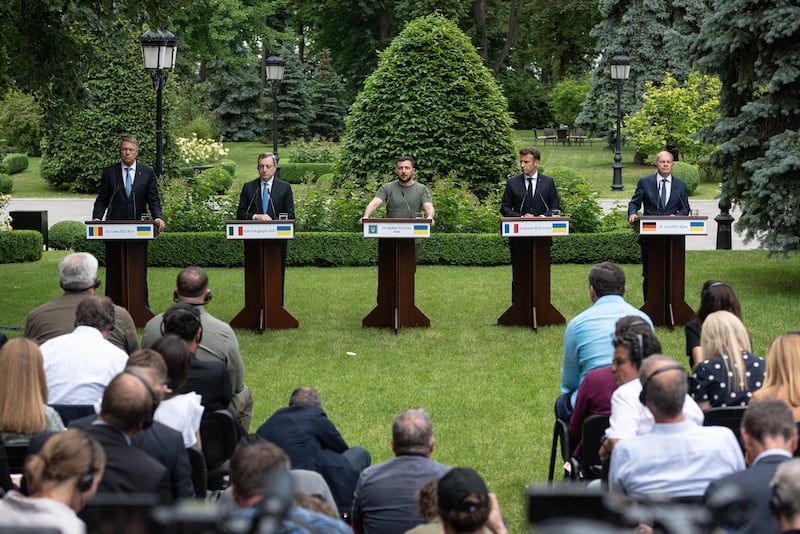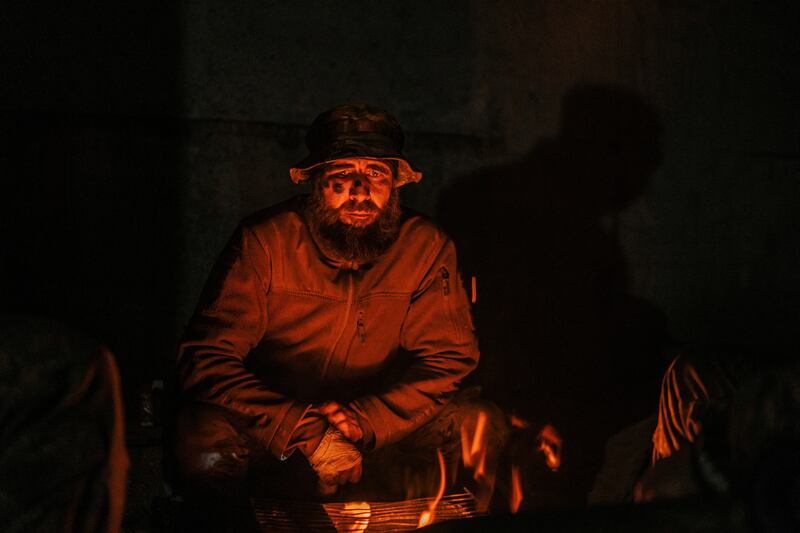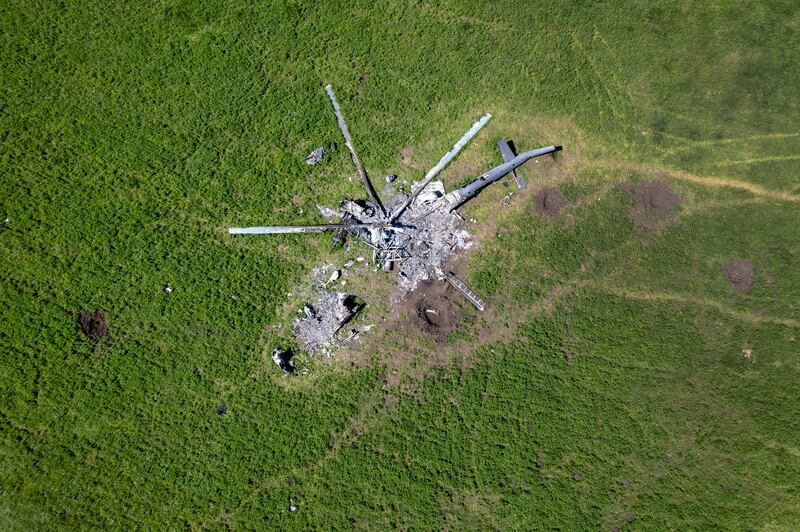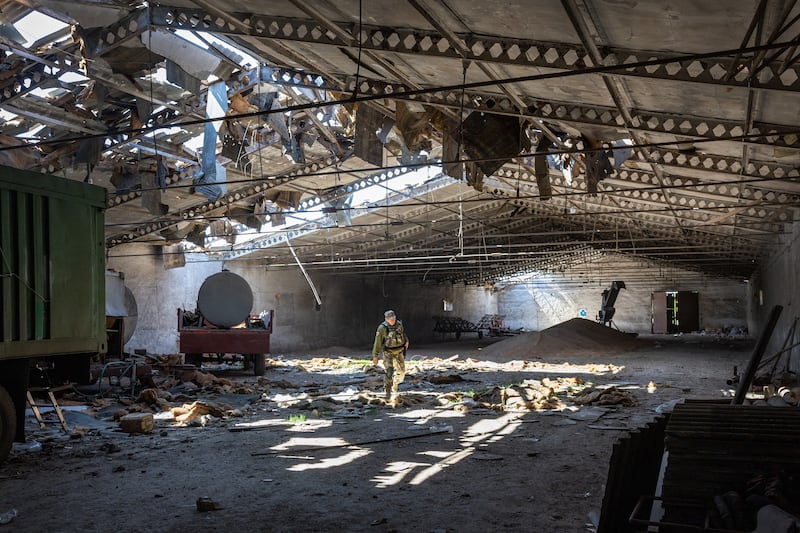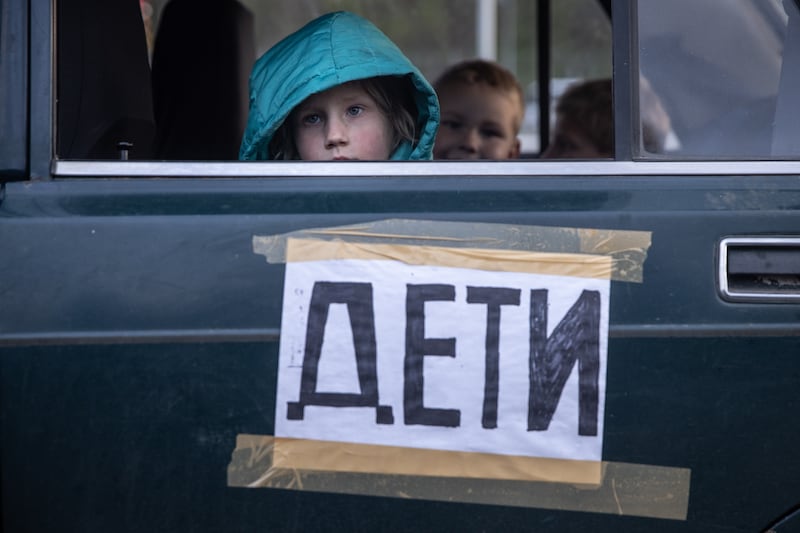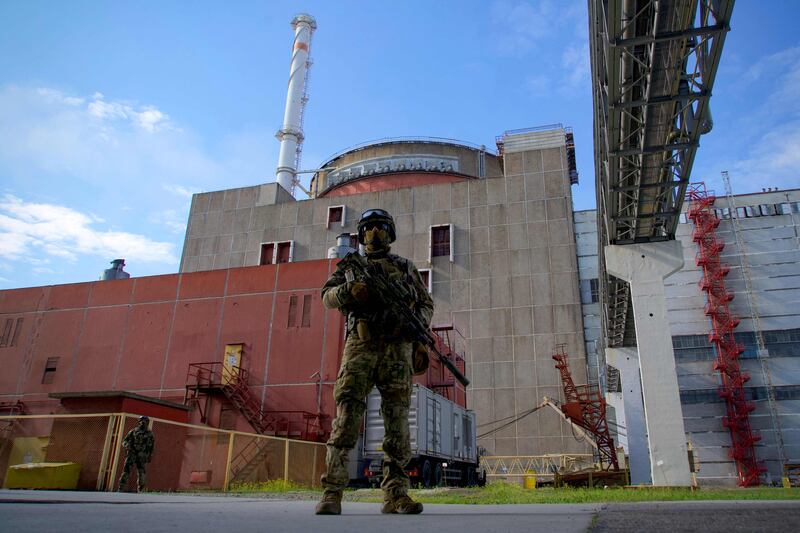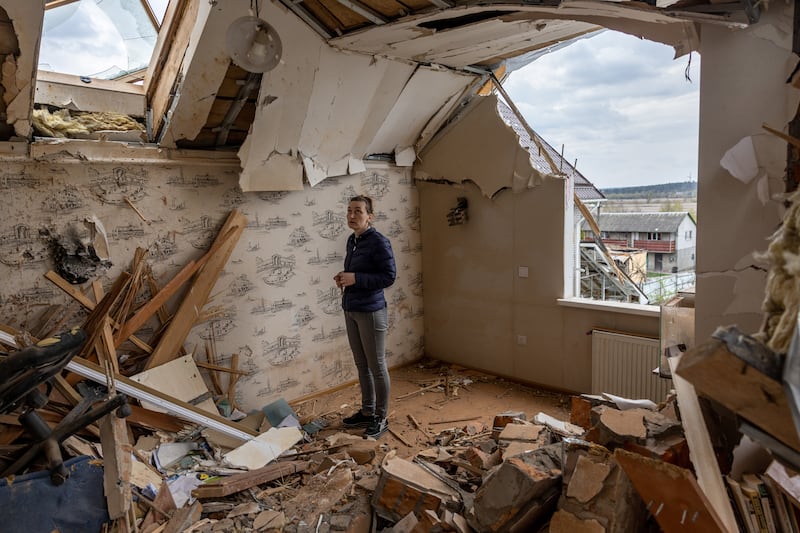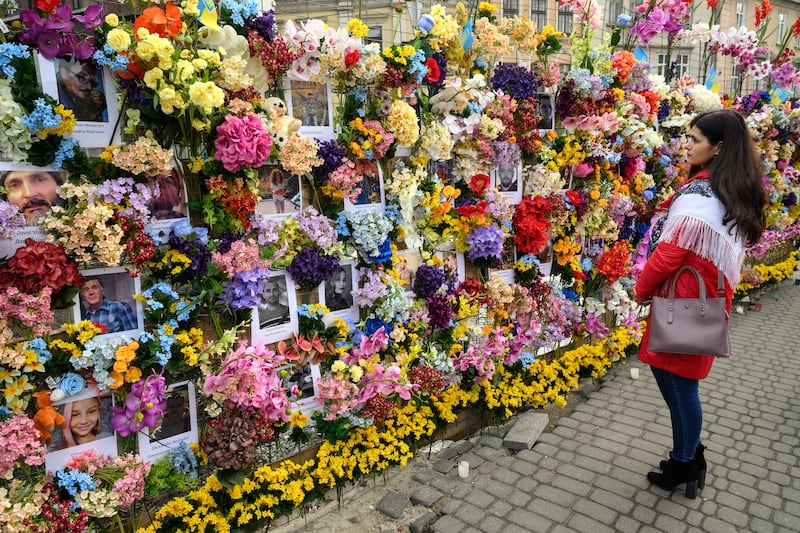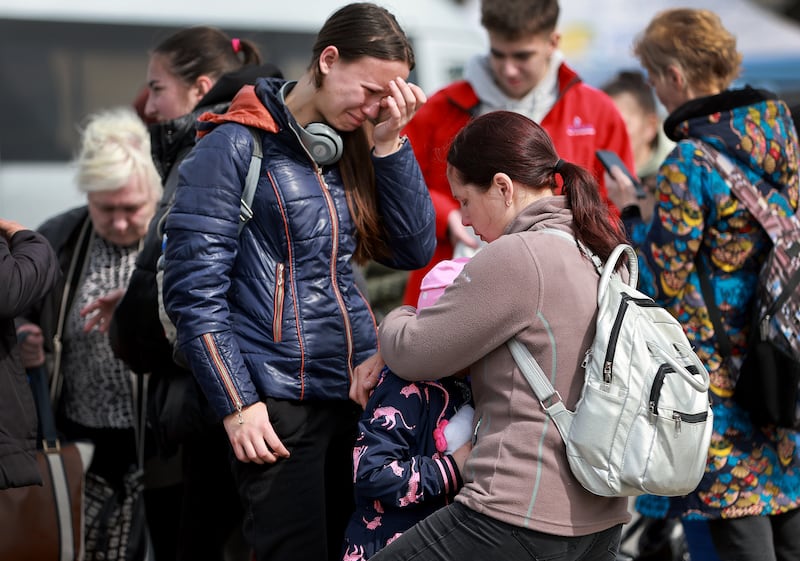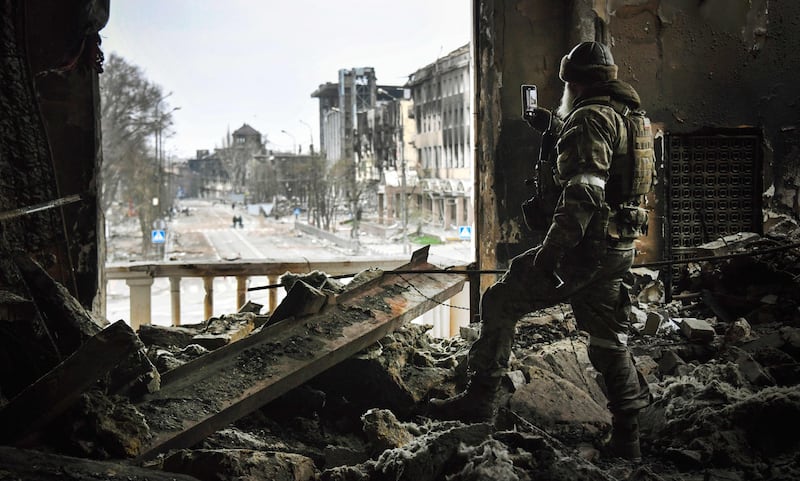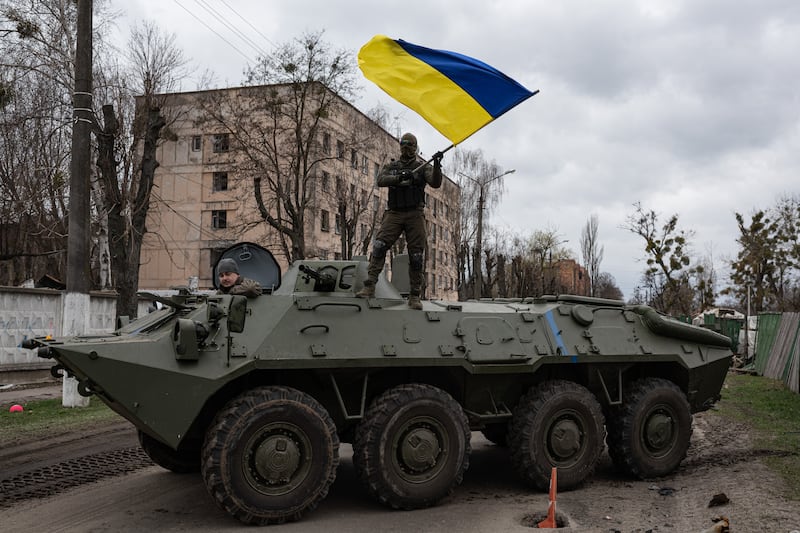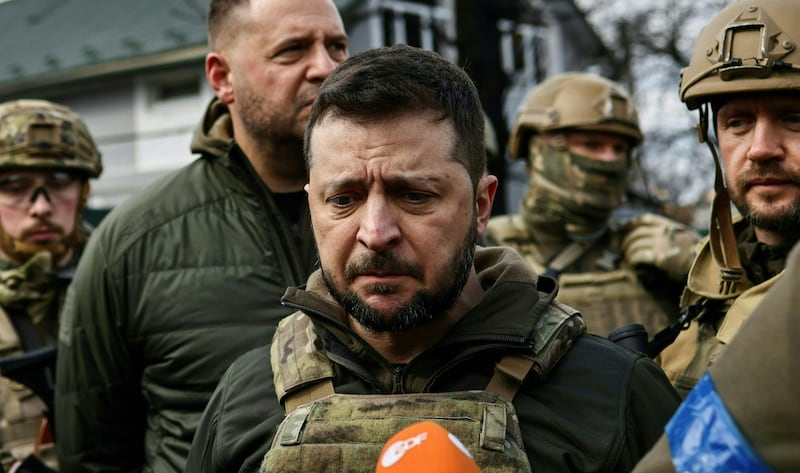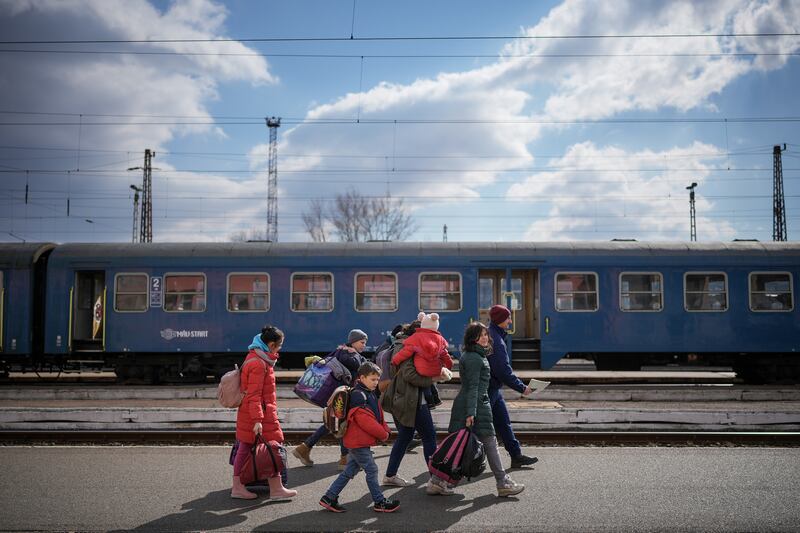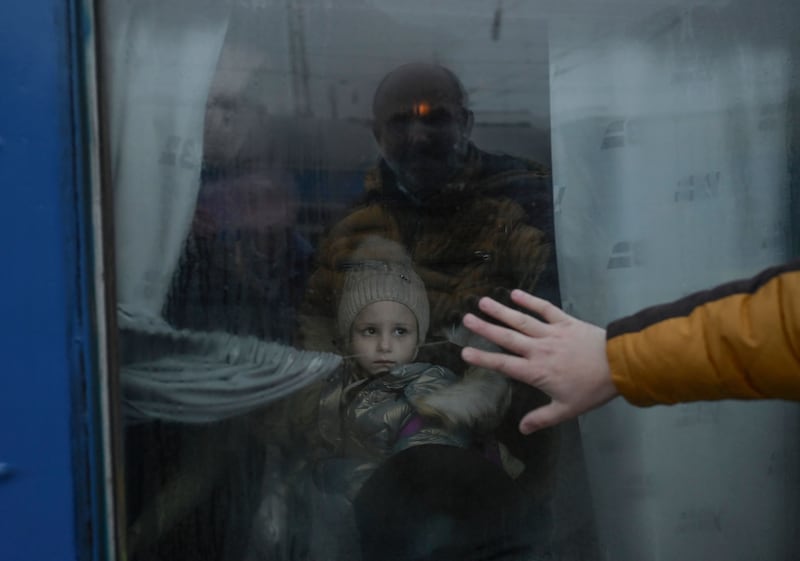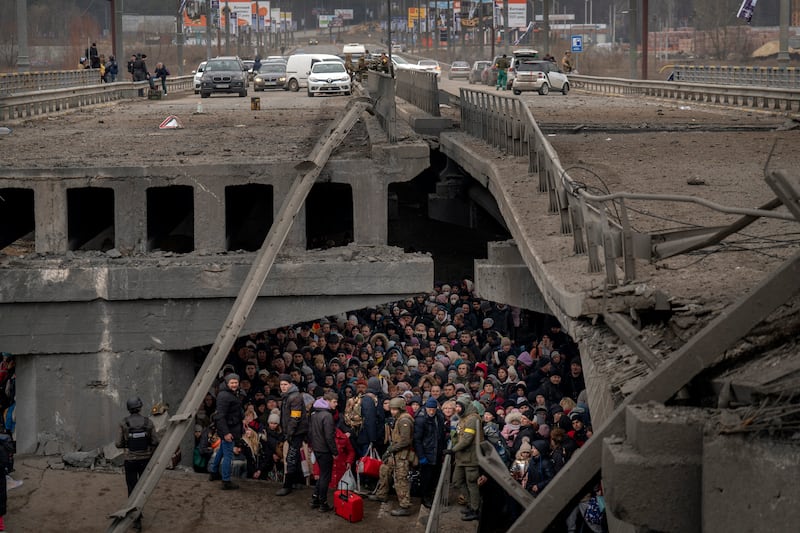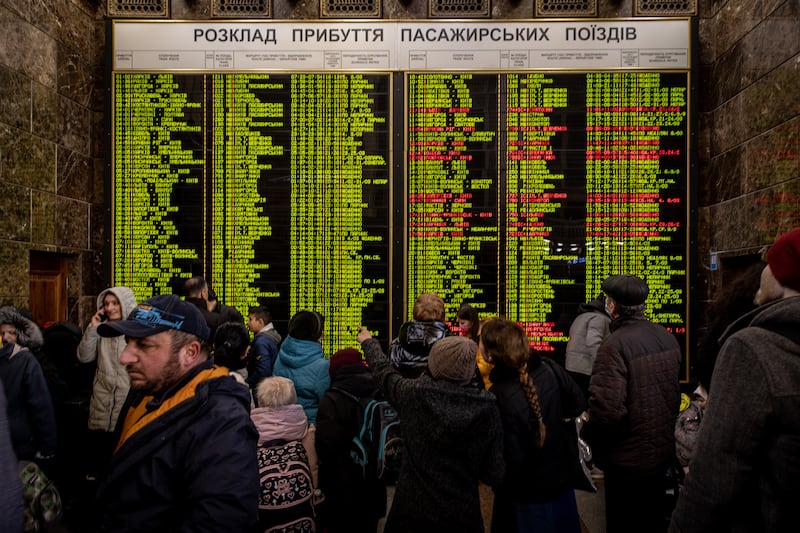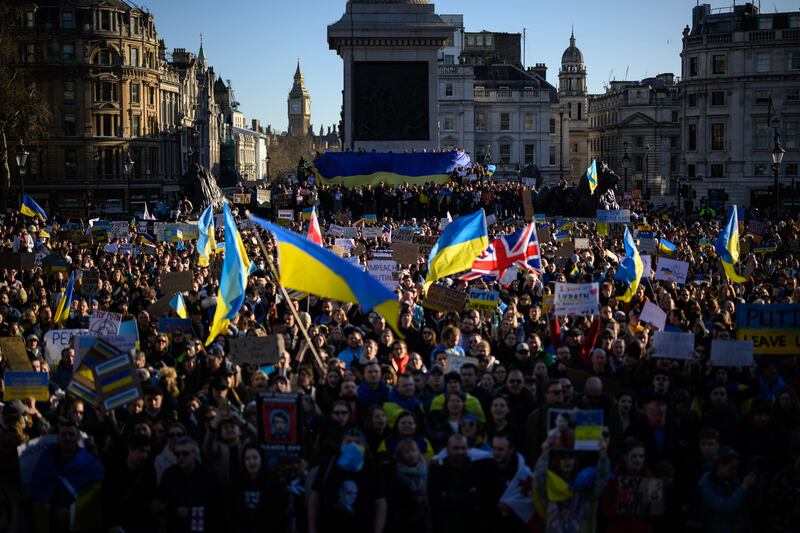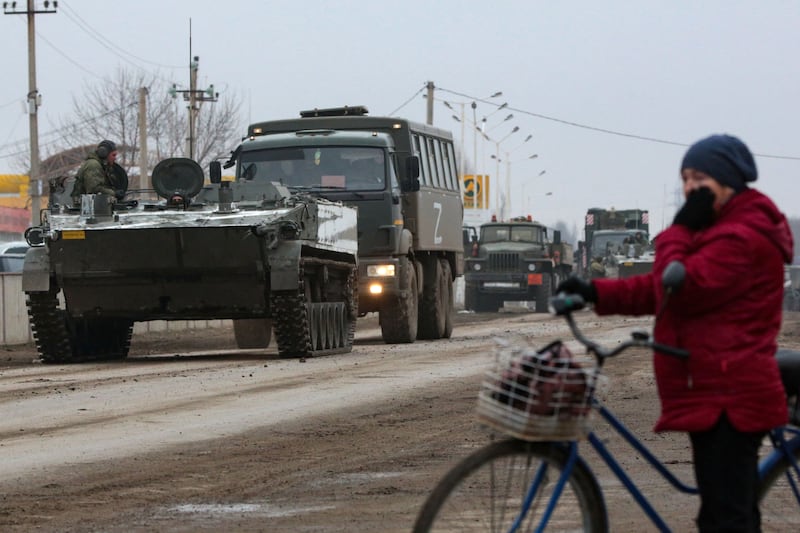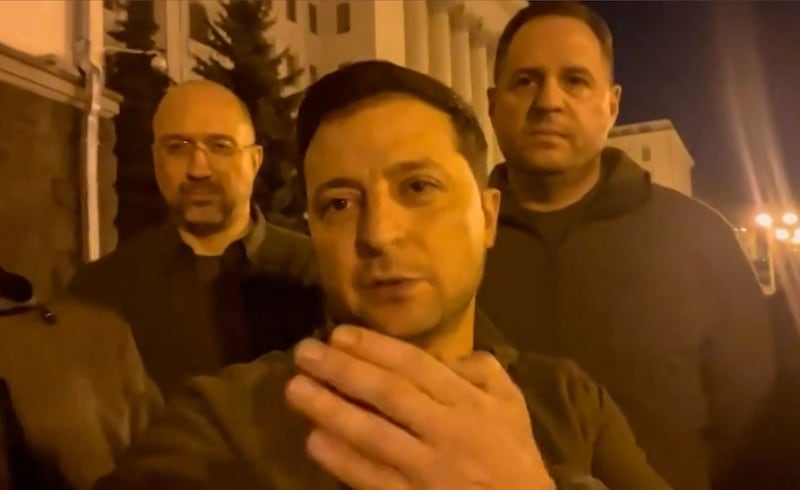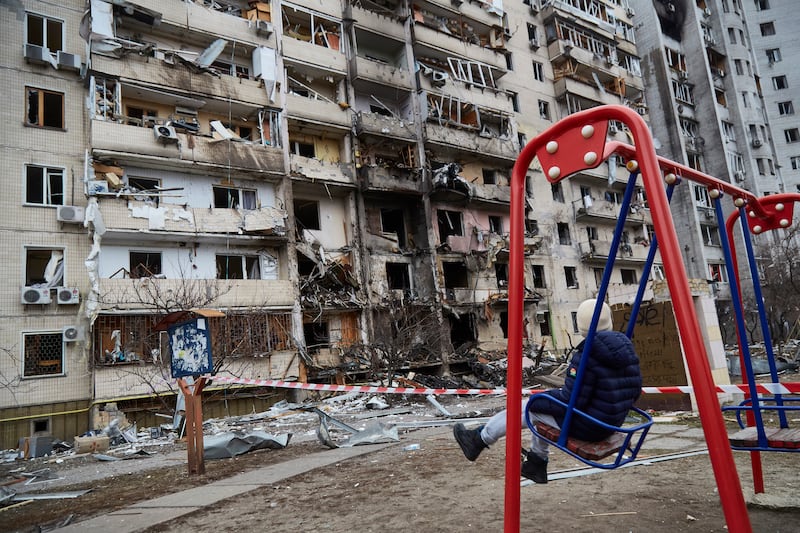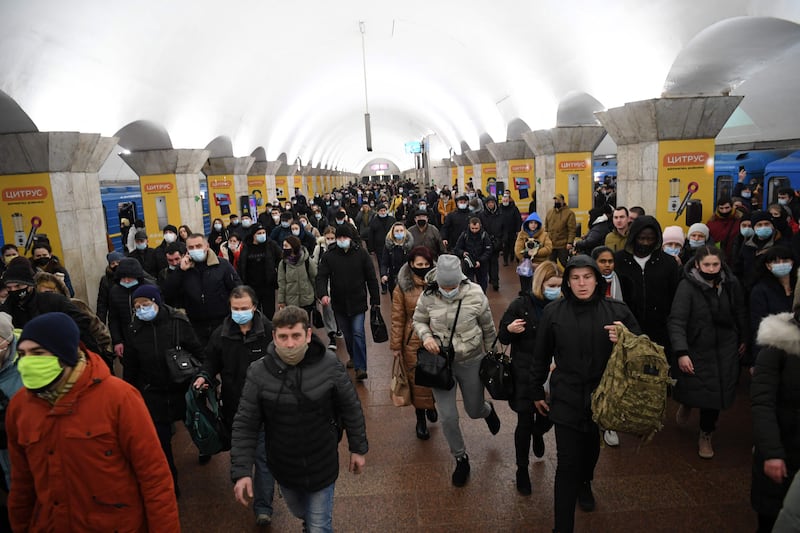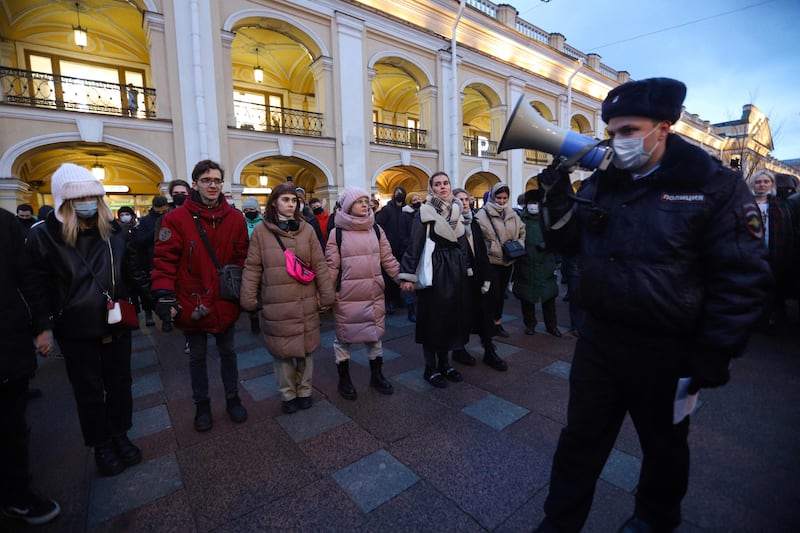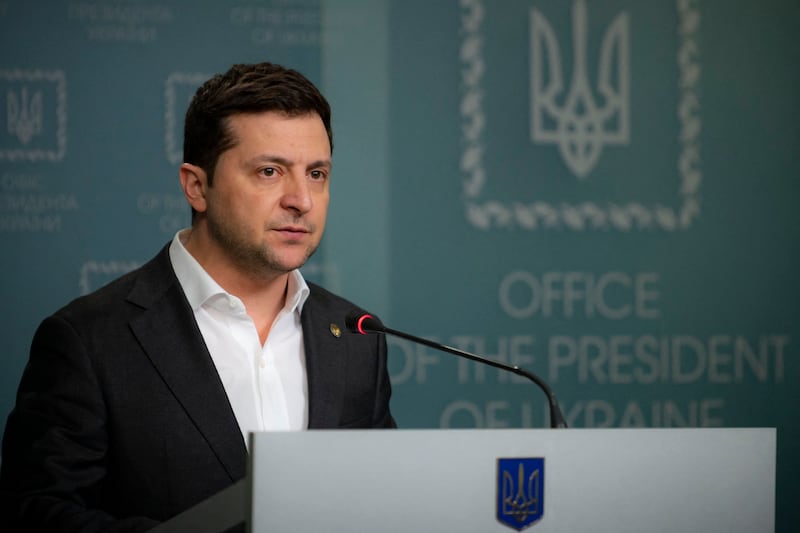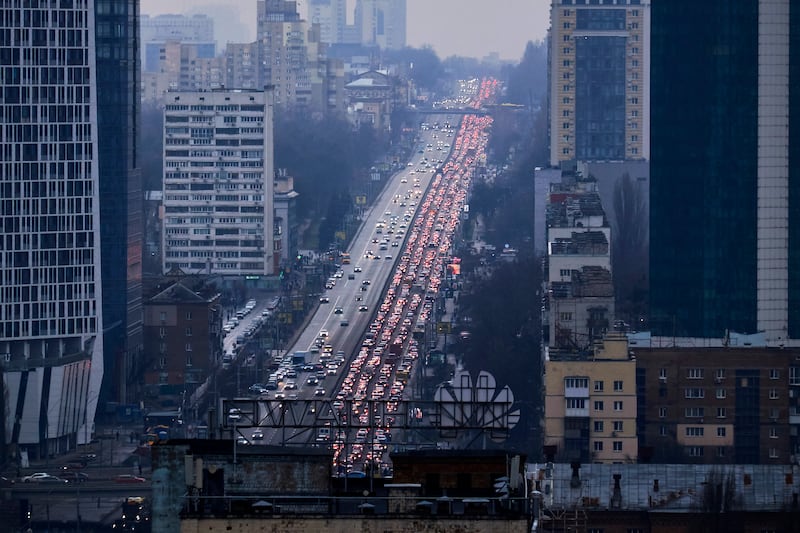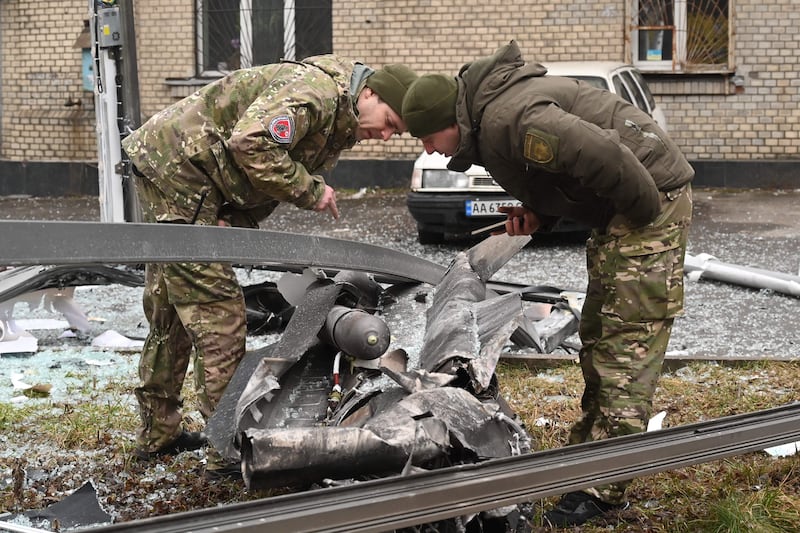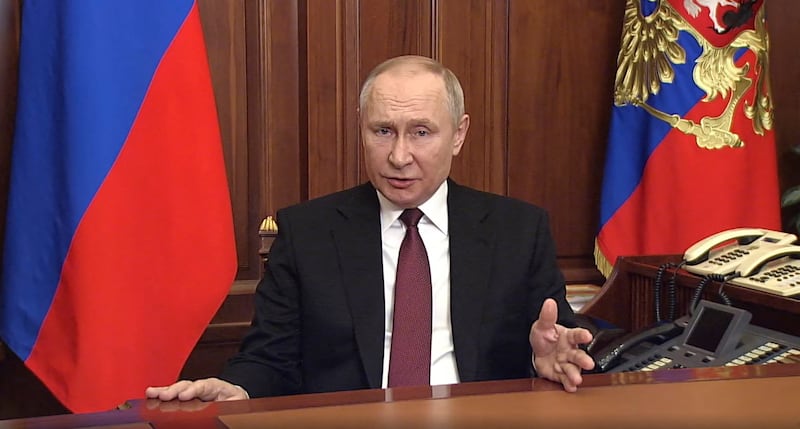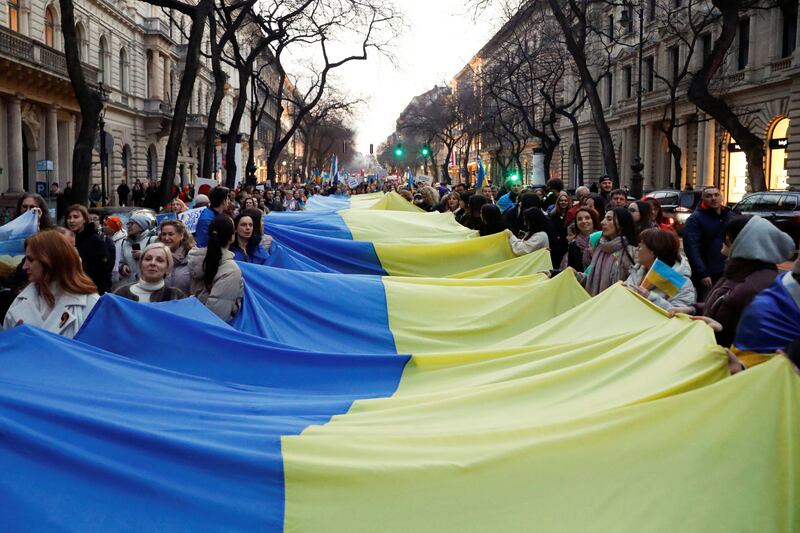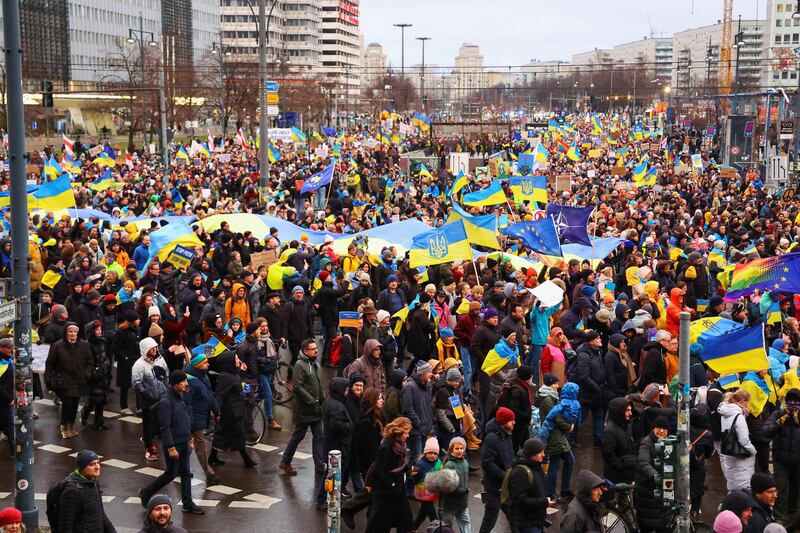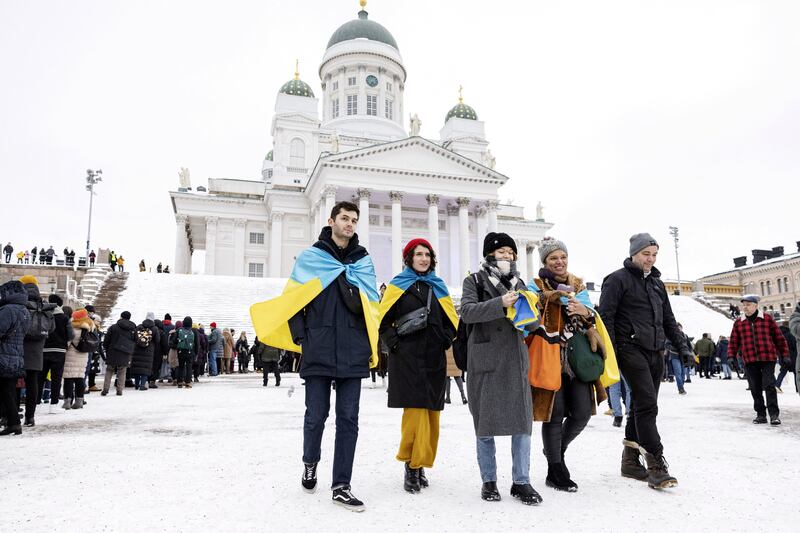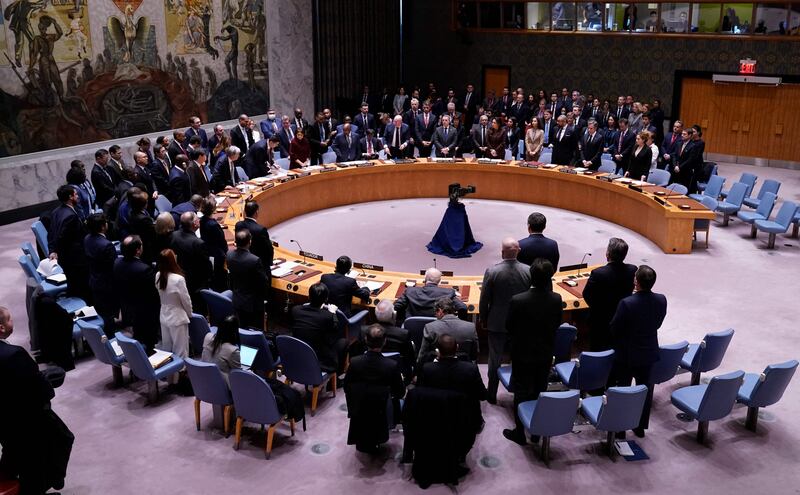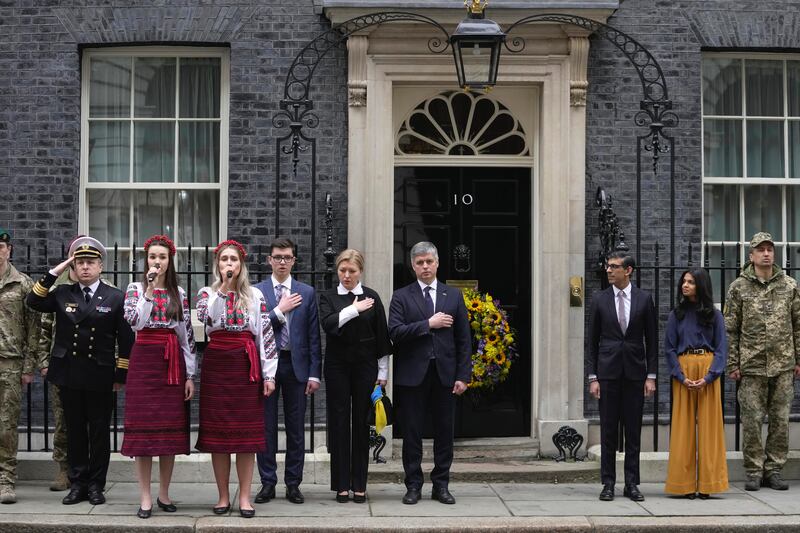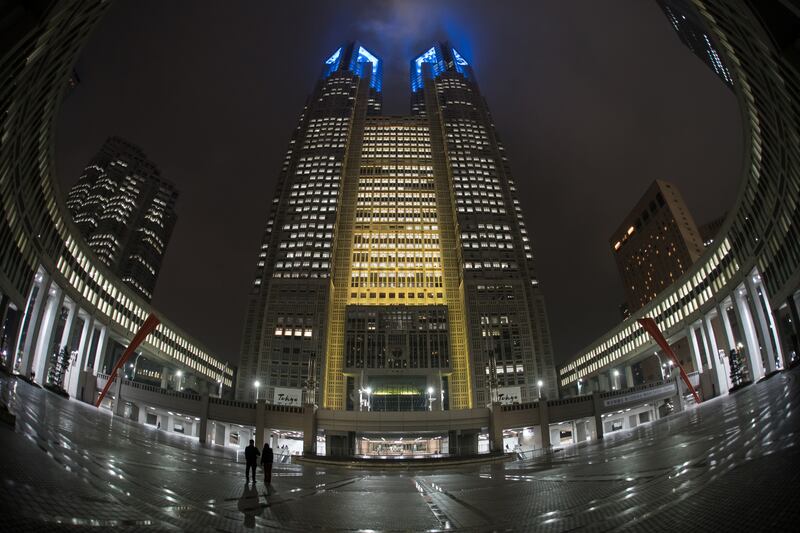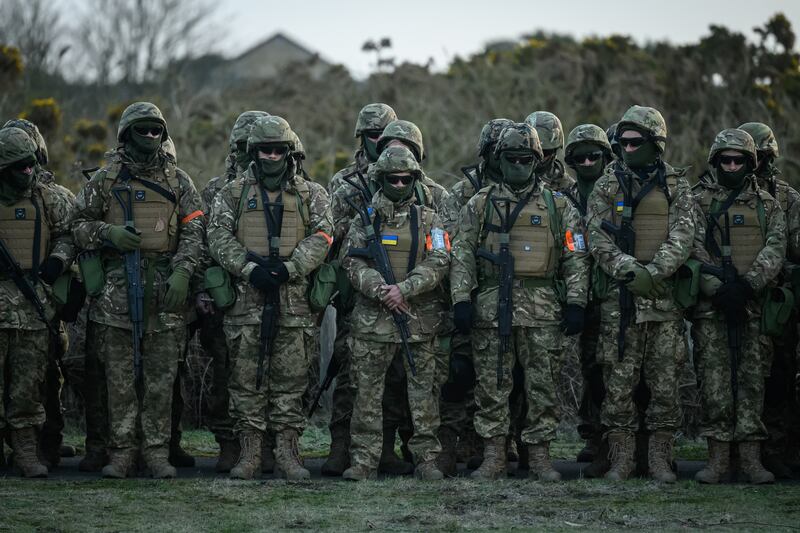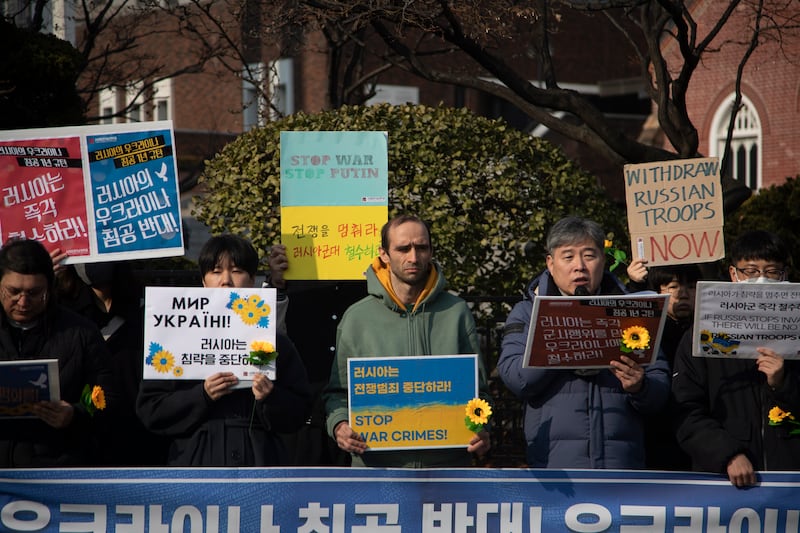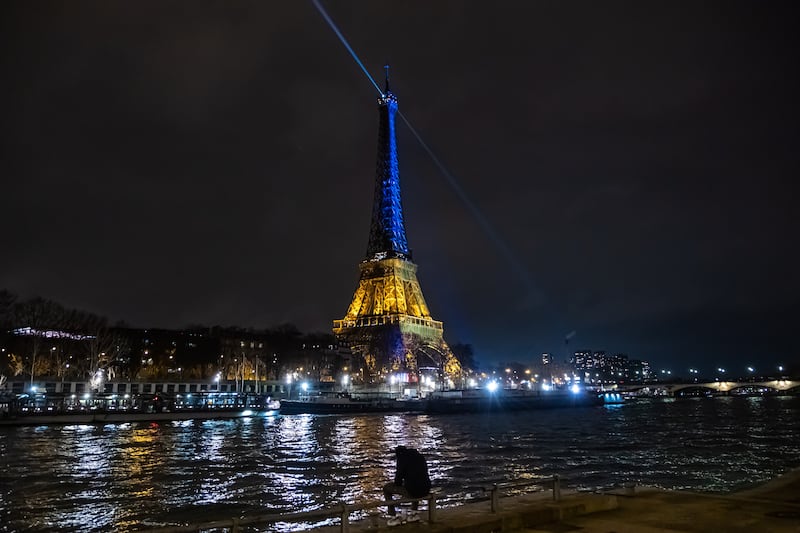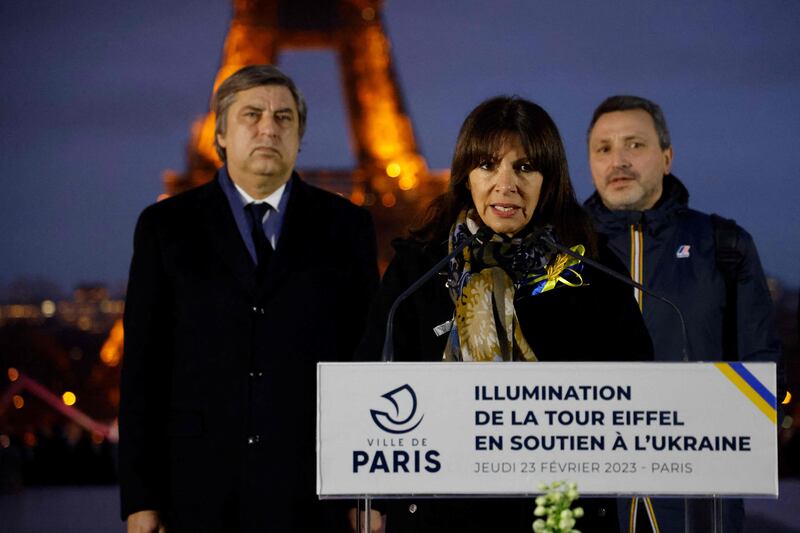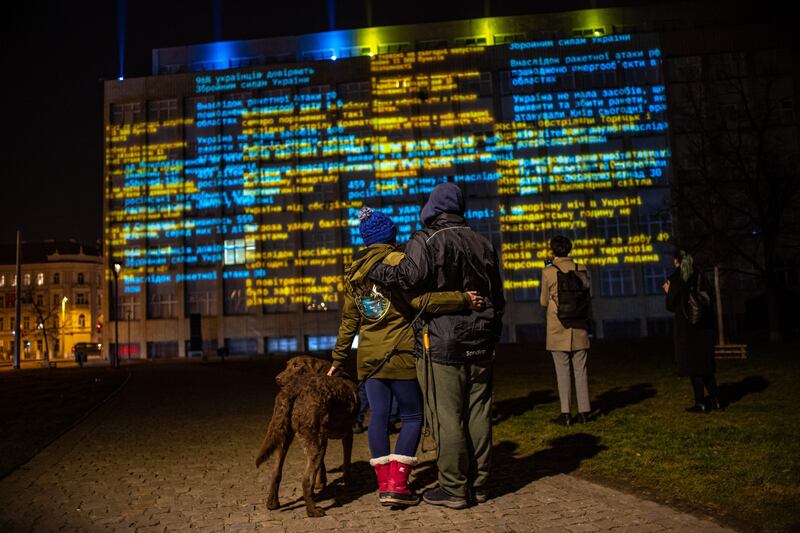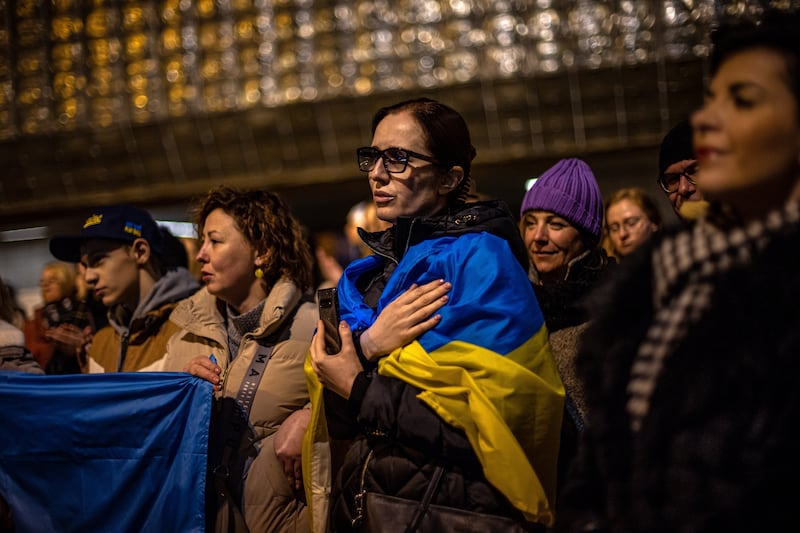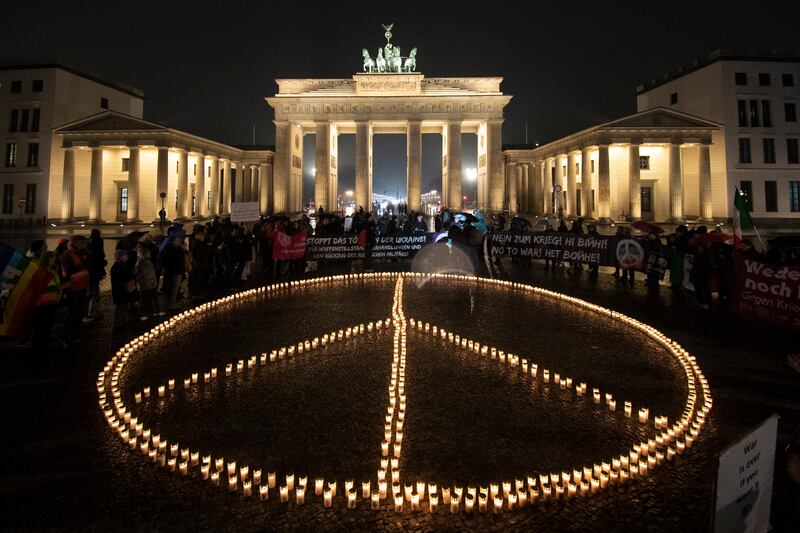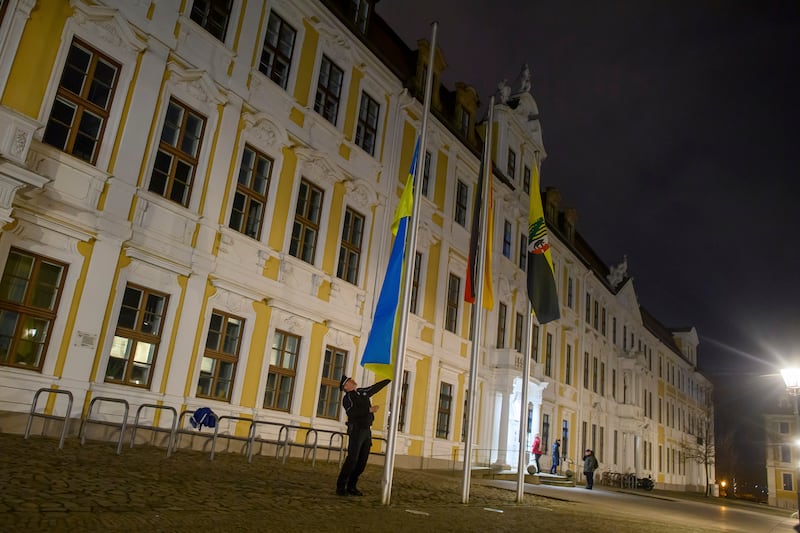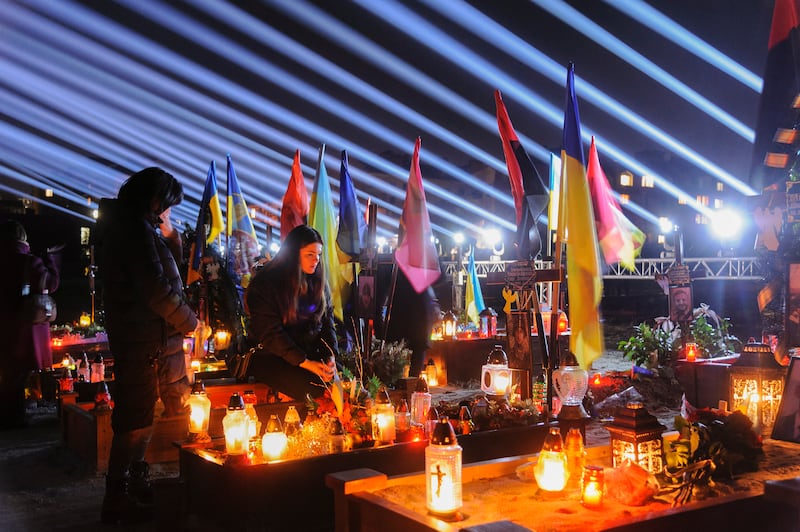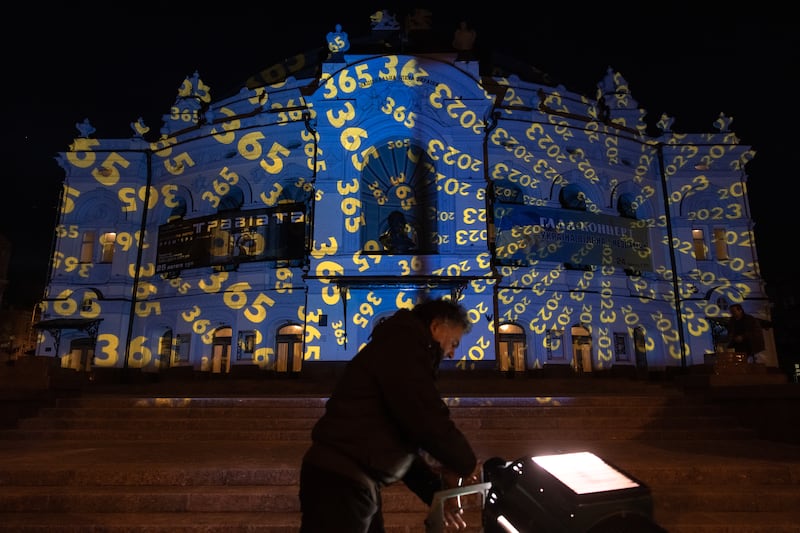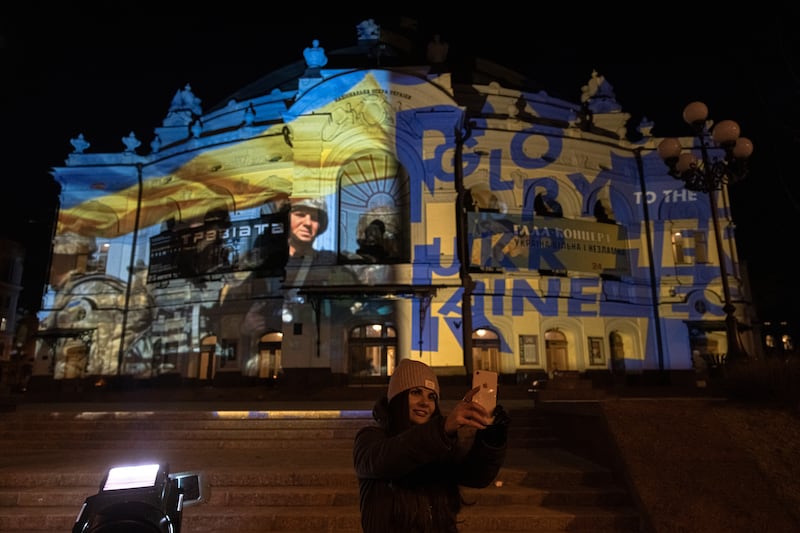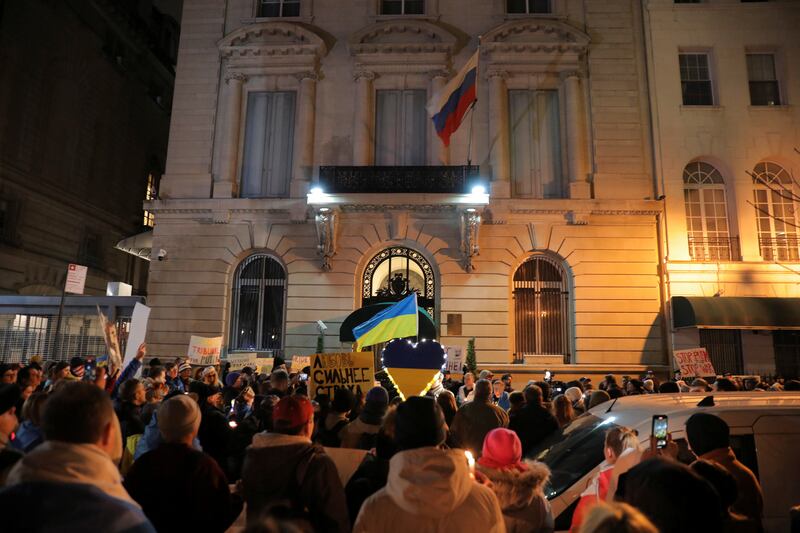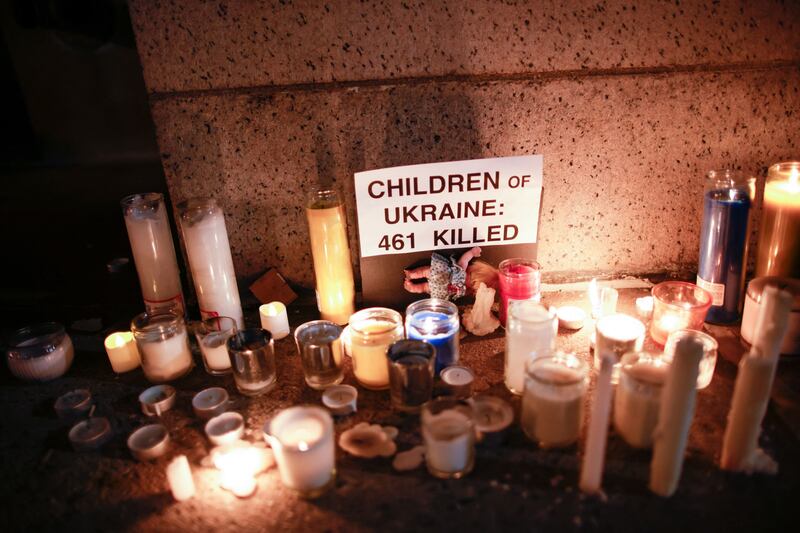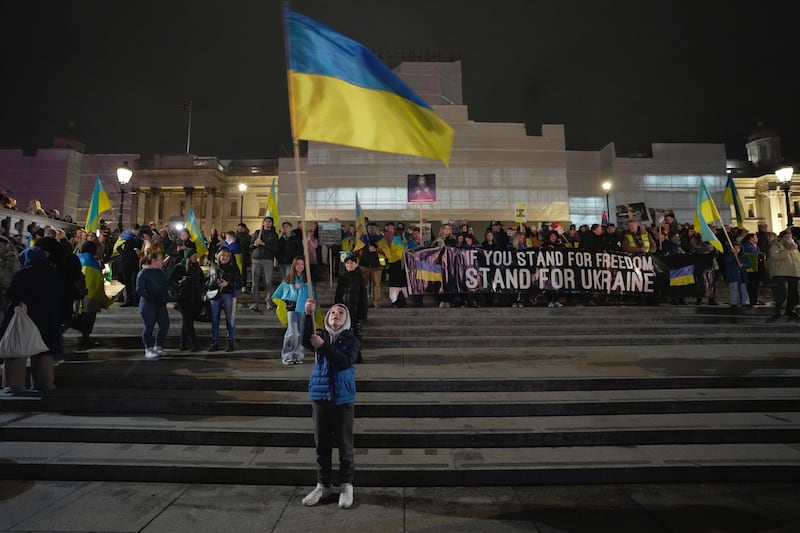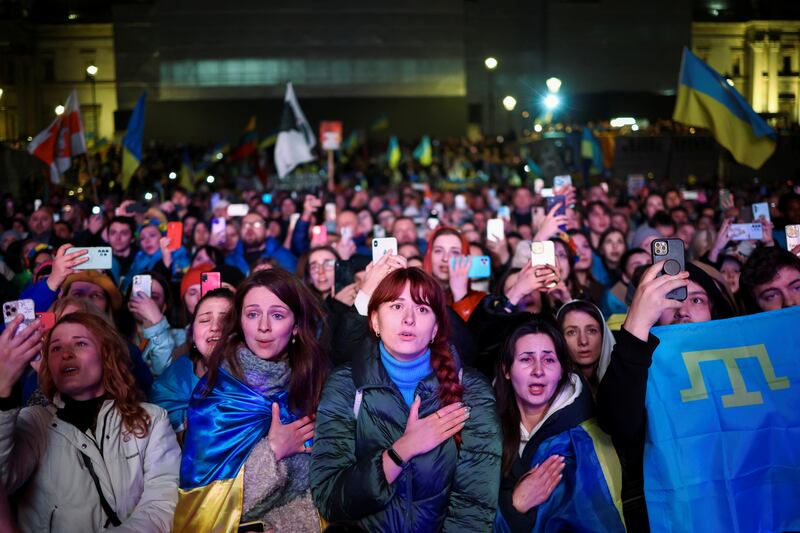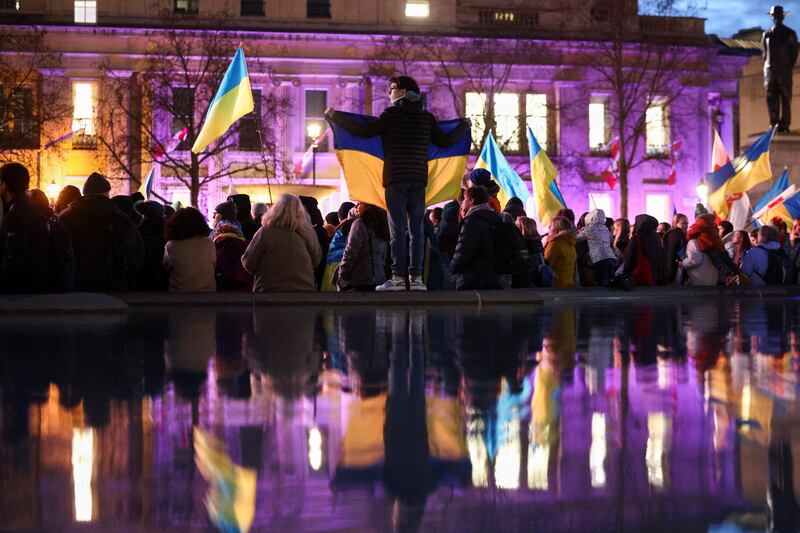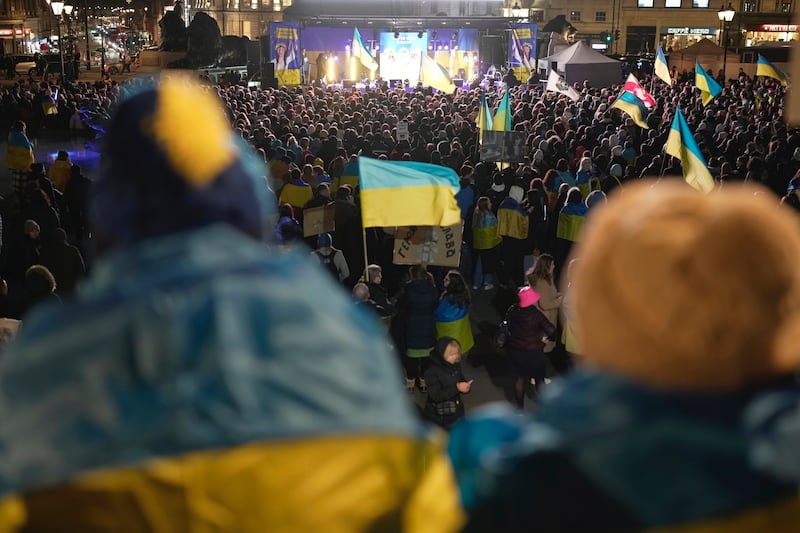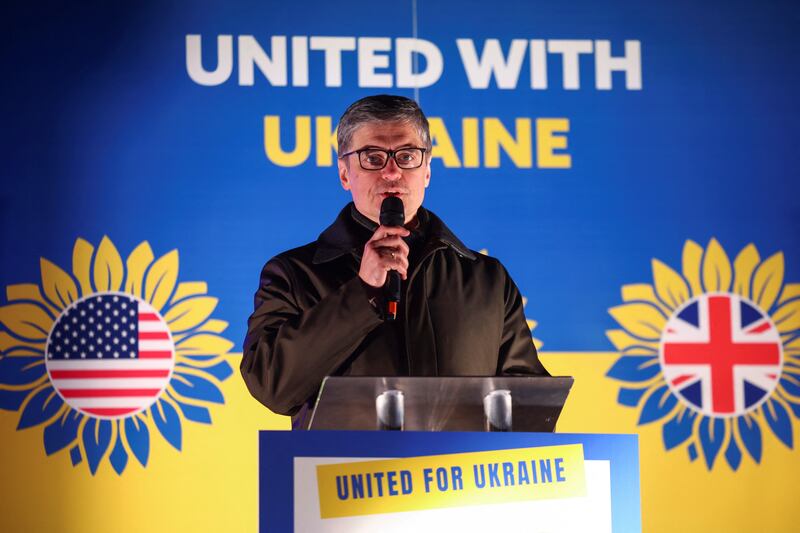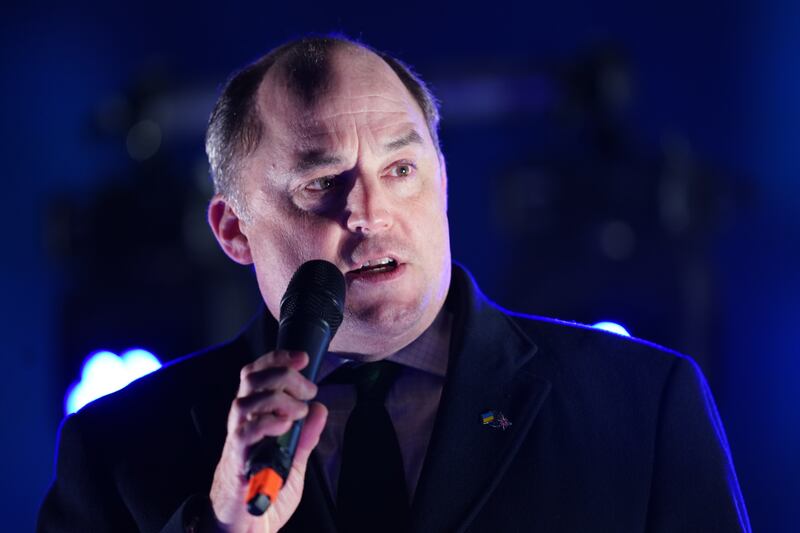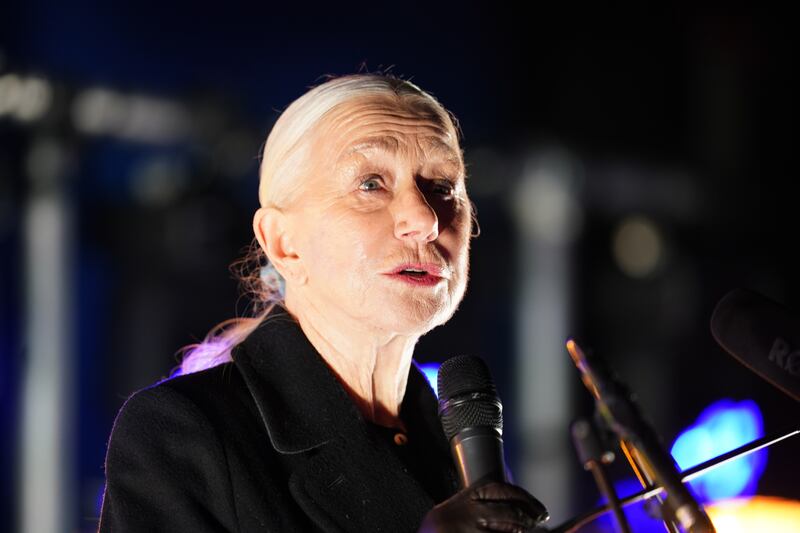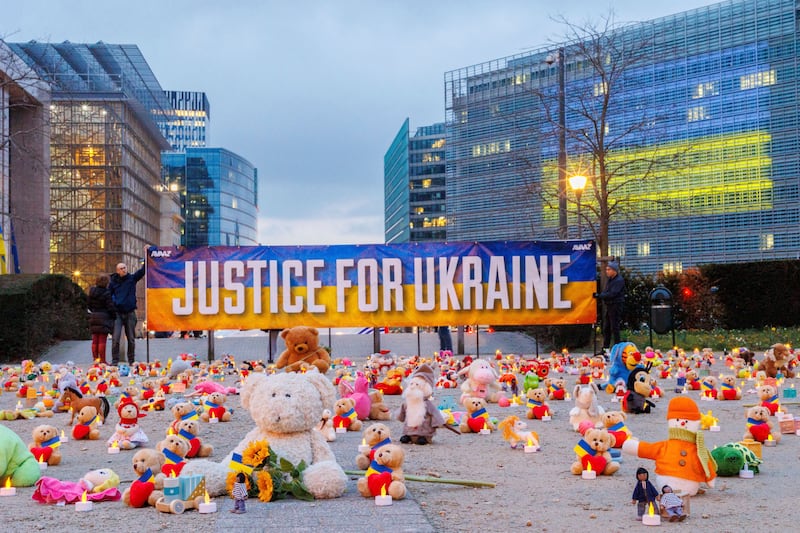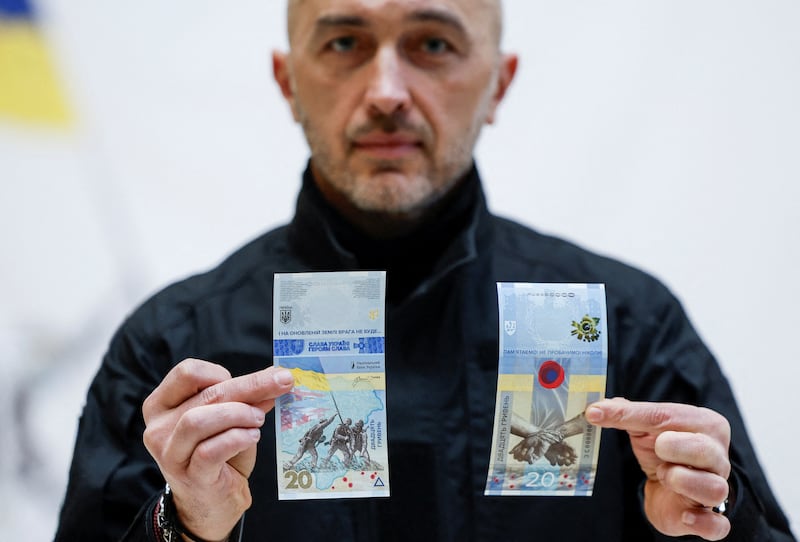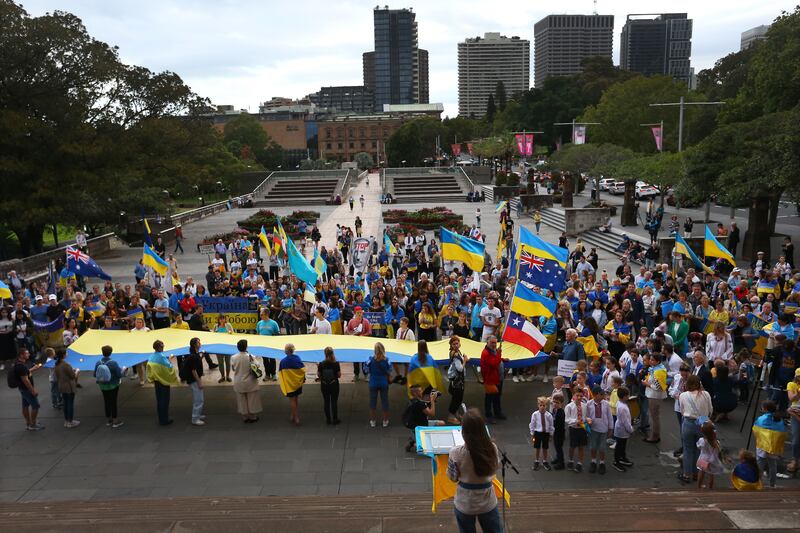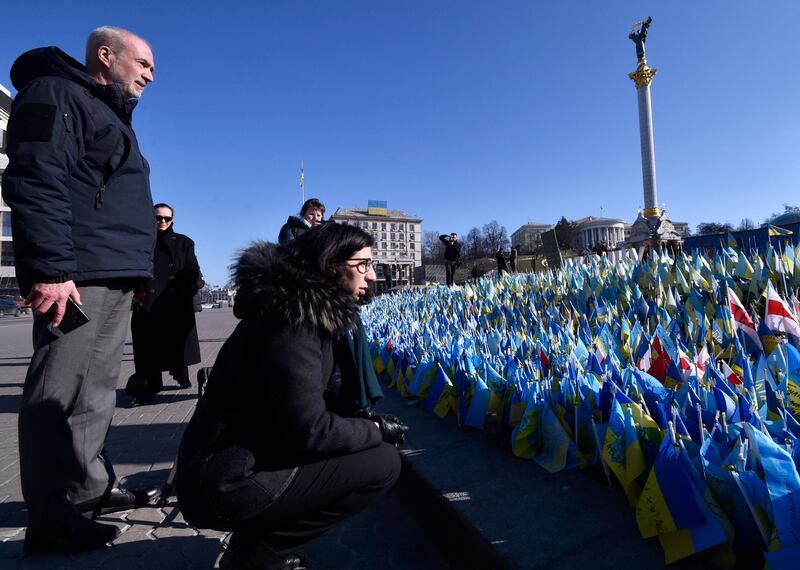Ivan Prodanyk could never have foreseen how his life would change over the past 12 months.
Home for him, his wife and two daughters was Irpin, a suburb of Ukraine’s capital, Kyiv. A lawyer, Mr Prodanyk had worked hard to establish a comfortable life for himself and his family.
“We had a good life. With my partners, we established a law firm from the beginning,” he says. “We didn’t [want] to start our lives all over again.”
But Russia’s invasion of Ukraine changed everything.
When Russian forces entered northern Ukraine via Belarus on February 24 last year, Mr Prodanyk turned on his radio to hear a government official saying troops had reached a town one kilometre away.
“I had a go-bag packed in the car,” he says. The family loaded up and headed towards the Romanian border.
“You just think about how to save your family.”
Luckily for Mr Prodanyk, his parents had emigrated to the US several months before the invasion, and after a short time in New York, had moved to Cleveland, a city in Ohio on the southern shores of Lake Erie.
“It’s a very comfortable place,” says Mr Prodanyk of Cleveland. “There is a lot of trees, a lot of parks. I like that.”
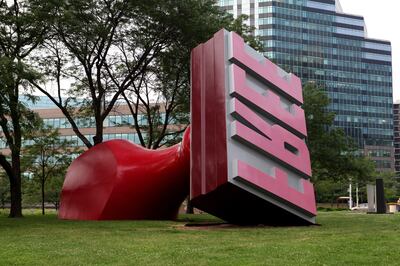
Since the onset of the war one year ago, about 200,000 Americans have applied to sponsor Ukrainians. A little more than 4,000 of those applications were made in the Cleveland area.
Home to large communities of Ukrainian and other Central and Eastern European immigrants for more than a century, Cleveland was pinpointed as a city to where Ukrainians could be resettled by the US federal government.
The government’s designation for Ukrainians who have come to the US since last year is that of “humanitarian parolees”, allowing them to stay in the country for an initial period of two years.
“We’ve seen people from Kherson, Kharkiv. We’ve seen people who already have families here [in Cleveland] coming over here,” says Marta Liscynesky-Kelleher, president of the United Ukrainian Organisation of Ohio, whose own parents immigrated from Ukraine in the 1950s.
Now, some from eastern Ukraine have nowhere to return to.
“Their cities are occupied by the Russians or are completely destroyed; there is no infrastructure, they don’t have a viable city to go back to,” Ms Liscynesky-Kelleher says.
“What they want to do is to work when they are here, with hopes of one day being able to return to their country.”
One year of the Russia-Ukraine war — in pictures
Global Cleveland, a non-profit that has helped tens of thousands of immigrants from around the world settle in the north-east Ohio region over the past 15 years, has played a leading role in assisting recent arrivals from Ukraine.
Joe Cimperman, president of Global Cleveland, says the organisation has helped more than 500 people since the invasion.
“We’ve had at least 300 come to us for free legal advice, and many others come to our office asking if we could help them with housing,” he says.
Cleveland, where this week a host of cultural and other events are being held to commemorate and highlight the war's first anniversary, was a natural choice for Mr Prodanyk and his family to resettle.
Today, he works as a case manager for the US Committee for Refugees and Immigrants, assisting Ukrainians who have resettled in the area to connect with employers and meet other essential needs.
“The people who have come over are very proud,” he says. “All they want to do is to find a job.”
His daughters, he says, are thriving at school alongside a large contingent of other recent arrivals from Ukraine.
Still, while efforts to help have come from a variety of community resources, challenges remain.
News reports suggest that local schools do not have sufficient language resources to meet the immediate needs of children coming from Ukraine.
Perhaps more pressing is the two-year time limit — an unsettling countdown for many.
“We don’t want it to be the case that they are coming up on two years and they don’t have the ability to be able to stay for an extended period,” says Ms Liscynesky-Kelleher. “Hopefully those things are being thought through.”
It is a sentiment foremost in the minds not only of Ukrainians and support networks, but Cleveland-based companies.
“I speak to employers [of Ukrainian immigrants] and they tell me: ‘I want to pay for their education and training, but I need to know that they will still be here in two years, and beyond that,’” says Mr Prodanyk.

As the US continues to be gripped by a widespread labour shortage, some immigrant specialists suggest that the parole time period may be extended.
In Cleveland, assistance organisations and immigrants alike appear to be becoming more comfortable with their new respective realities.
Spurred by the federal government’s announcement last month of a new refugee sponsorship programme called Welcome Corps, which allows private individuals to sponsor immigrants, local churches are increasingly reaching out to help.
“We have more and more families who want to adopt Ukrainian immigrants,” says Mr Cimperman.
“I think you’re going to start to see a lot more movement of people coming here because they’re basically decentralising the way that we can bring people over.”
